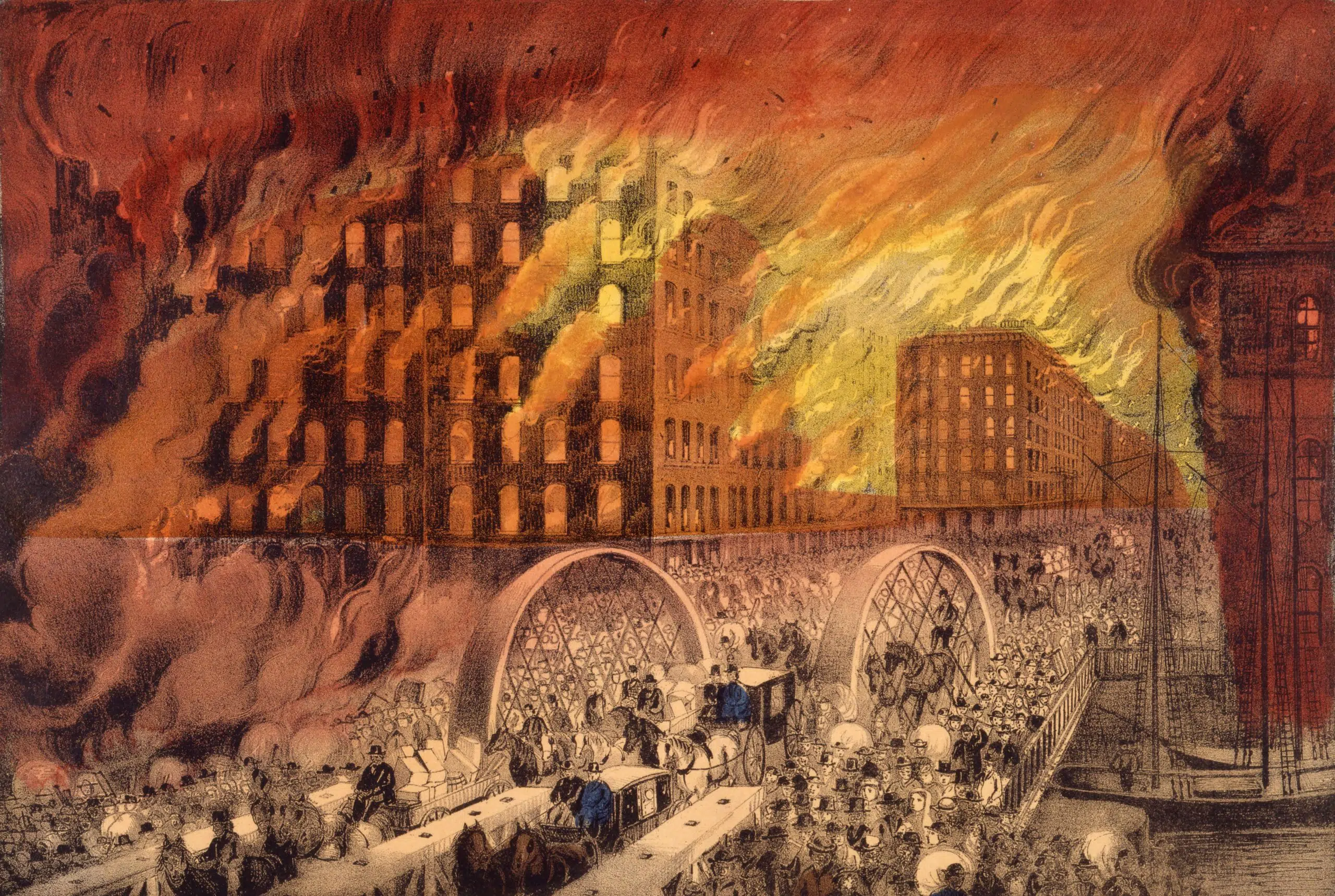HOLLAND, MI (WKZO AM/FM) — You’ve heard of the Great Chicago Fire but how about the Great Michigan Fire, or fires? The event was part of a rolling disaster exactly 150 years ago on October 8, 1871.
In Michigan, 2.5 million acres were incinerated along with much of the City of Holland, Alpena, Manistee, and Port Huron. Fire tornadoes were reported and caused some houses to explode into flames. The concurrent Peshtigo Fire in Wisconsin also destroyed several towns in the Upper Peninsula of Michigan.
Theories on the cause
In the mid-1830s logging had grown into a major industry in Michigan. These operations left behind branches, bark, and quantities of unused wood that became a fuse just waiting to be lit. After a long, dry summer in 1871, and some high winds on that October day, hundreds of smaller land-clearing fires whipped together to form a massive wall of flames that devastated regions in multiple states.
Another theory even had a meteor spreading burning debris across the state from Lake Michigan to Alpena. That theory has fallen from grace much like the famous story of Mrs. O’Leary’s cow on the south side of Chicago, thought to be to blame for several years.
Aftermath
Not only was the land left barren in scattered areas across Michigan, but thousands of buildings were destroyed and it literally left no lumber left to rebuild. Hundreds of families were left homeless. The extent of property loss, animal deaths, and forest devastation has never been determined, but it was likely among the worst conflagrations in the history of the United States.
Also unknown is the total number of human casualties. Some estimates put the loss of life at fewer than 500, but they were largely based on families reporting their members missing. In 1871 in Michigan there were hundreds to thousands of lumberjacks and salesmen spread out across the state, along with settlers in remote areas, making it impossible to know the total death toll.
Because the Michigan fires occurred during the day, the estimate of the death toll is lower than the Great Chicago Fire’s estimated 250 to 300 reported dead.
The Holland Museum is hosting two Historical Fire Walking Tours on Saturday, from 1 to 2 pm and 3 to 4 p.m. Registration is required; each tour is limited to 40 participants. Tickets cost $7, which includes a processing fee. The museum will also host readings of first-hand accounts of the from from 2:15 to 2:45 pm:
Tickets for the readings cost $7 for adults, $6 for seniors and $4 for students. Details are online at hollandmuseum.org/event/the-night-america-burned.







